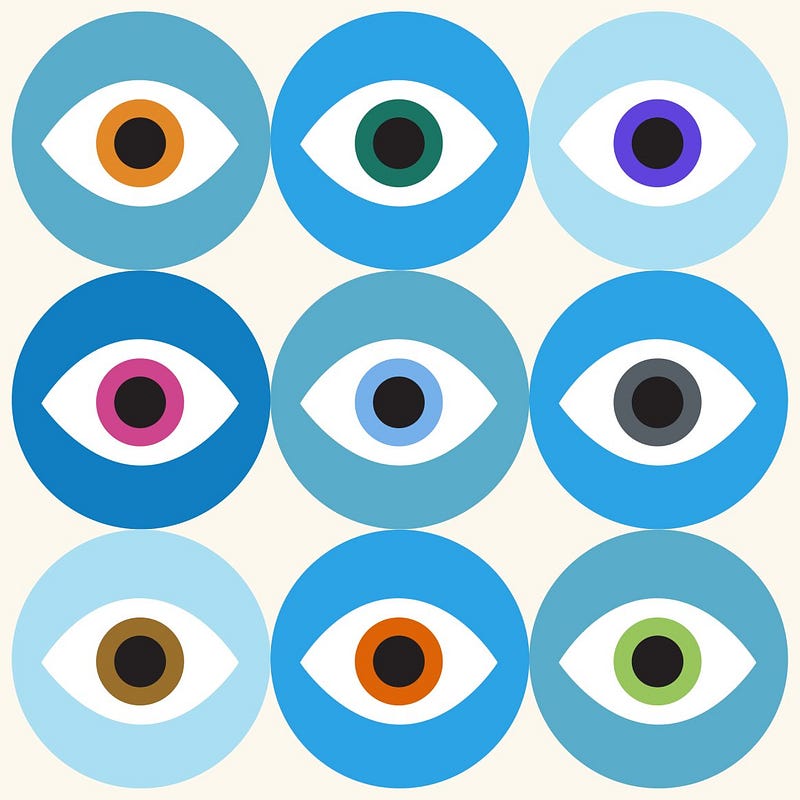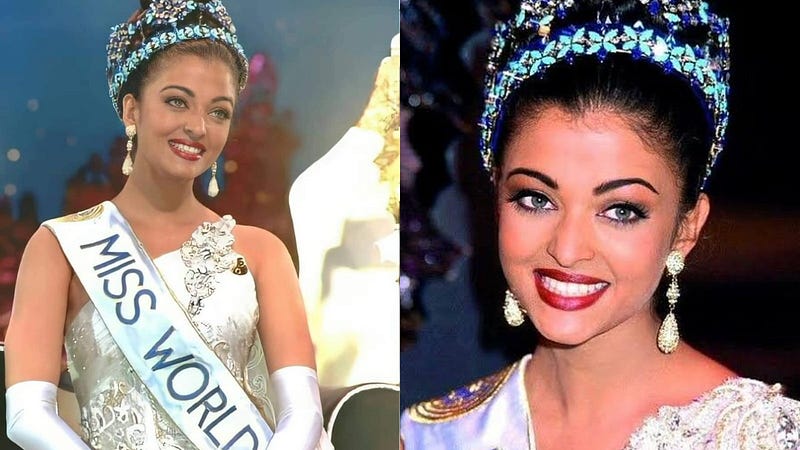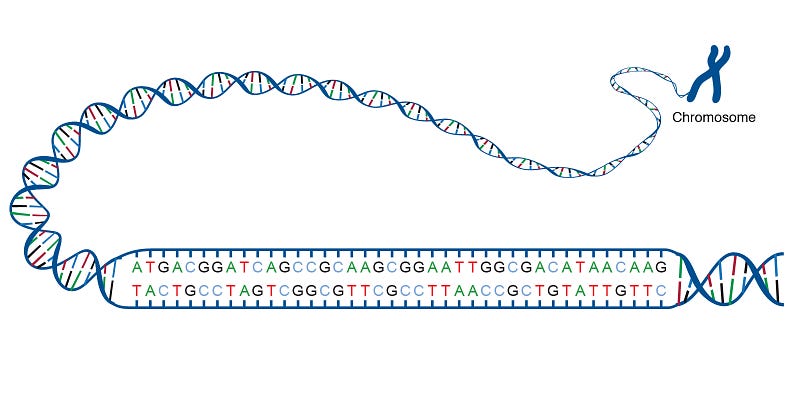Exploring CRISPR's Potential for Eye Color Alteration
Written on
Chapter 1: The Fascination with Eye Color
As a student of biology and a writer, I felt compelled to explore the topic of CRISPR gene editing. Although this subject has been widely discussed, I discovered through various online forums that while many understand the basics of CRISPR, fewer are aware of its potential use in aesthetic modifications, specifically eye color alteration.

The idea for this article was sparked not by academic study but by the captivating Aishwarya Rai, a renowned Bollywood actress and Miss World 1994, famously recognized for her mesmerizing aqua-green-blue eyes.

During my childhood, my sister shared a rumor that Aishwarya had traveled abroad for surgery to transform her natural brown eyes into blue. This notion fascinated me then and has led to ongoing inquiries: Is altering one’s eye color feasible? What determines the color of our eyes?
After extensive research through literature and videos, I uncovered some intriguing insights: it seems that changing eye color might be a reality! If you’ve ever wished for eyes as striking as Aishwarya Rai's, there’s reason for optimism.
Where Do Blue Eyes Originate?
A video by WIRED featuring Human Geneticist Dr. Neville Sanjana reveals that all humans initially had brown eyes until a genetic mutation, occurring 6,000 to 10,000 years ago, introduced blue-eyed individuals via a gene called OCA2. In my introductory biology course, I learned that genes can function like switches; here, the OCA2 gene was effectively turned off, halting the production of brown pigment.
The OCA2 gene is responsible for coding the P protein, which facilitates melanin production in our eyes, hair, and skin. When OCA2 is deactivated, the resulting decrease in melanin can transform brown eyes into blue.
Dr. Sanjana further notes that eight genes influence eye color, stating, “even if you possess the brown-eyed variant of OCA2, contributions from the other seven genes can occasionally lead to blue eyes.” Interestingly, complete deactivation of OCA2 can result in albinism, a condition marked by reduced pigmentation in skin and hair.
What is CRISPR and Its Role in Genetic Modifications?
Having discussed CRISPR in previous biology courses, I know that several online videos explain this mechanism far better than I could. To provide a brief overview, CRISPR, which stands for clustered regularly interspaced short palindromic repeats, is a natural process found in bacteria, modified by scientists to edit genomes.
Our genome is composed of DNA bases: adenine (A), cytosine (C), guanine (G), and thymine (T), serving as the blueprint for our biology.

CRISPR sequences work alongside a protein known as “Cas,” which acts like molecular scissors, cutting specific DNA sequences for replacement. This process is guided by a piece of RNA (referred to as guide RNA), which directs Cas to the precise target sequence. The cut DNA can then be replaced with template DNA, either correcting a defective gene or inserting a new one to rectify genetic errors.
This innovative tool is primarily aimed at developing treatments for diseases like sickle cell anemia and cancer; however, its applications are increasingly stretching into aesthetic realms.
Initially, these cosmetic applications struck me as unsettling. Years ago, I watched a TED Talk discussing the ethical dilemmas surrounding 'designer babies,' where parents could potentially select genetic traits for enhanced intelligence, athleticism, or attractiveness, fundamentally altering not just physical attributes but also capabilities.
The ethical considerations surrounding human genetic modification remain complex and largely unexplored due to insufficient data. However, it is likely that such cosmetic procedures would be reserved for the affluent, raising concerns about socioeconomic disparities in access to such technologies. But let’s redirect our focus back to the topic at hand: eye color modification.
Can CRISPR Alter Eye Color?
The answer is yes, but with caveats. While eye color can be altered during the embryonic stage, modifying it postnatally is currently unfeasible. Research has shown that CRISPR has successfully knocked out eye color genes in organisms like the Helicoverpa zea (corn earworm) and edited the gene responsible for red eyes in certain moths. However, studies on this topic remain limited, and I look forward to more discoveries that clarify CRISPR's potential in changing eye color beyond embryonic stages.
The Reality Behind Aishwarya Rai's Eyes
As it turns out, Aishwarya Rai did not utilize CRISPR to obtain her iconic eyes; rather, she inherited them from her grandfather. While surgical options exist for changing eye color, such as Iris Implant Surgery, Laser Depigmentation, and Laser Keratopigmentation, these procedures carry risks and are generally discouraged.
The American Academy of Ophthalmology, alongside other medical organizations, strongly advises against cosmetic iris implants due to potential harm to healthy eyes.
So, the next time you admire a celebrity's eye color, remember to appreciate your unique attributes. After all, your eyes allow you to experience the beauty of the world, deserving recognition just as they are.
The first video titled "How to change your eye color PERMANENTLY. But is it safe?" delves into various methods of altering eye color, examining their safety and effectiveness.
The second video, "Revolutionary CRISPR Gene Editing Trial for Vision Loss at Mass Eye and Ear," explores groundbreaking CRISPR trials aimed at addressing vision loss, showcasing the technology's potential in ophthalmology.